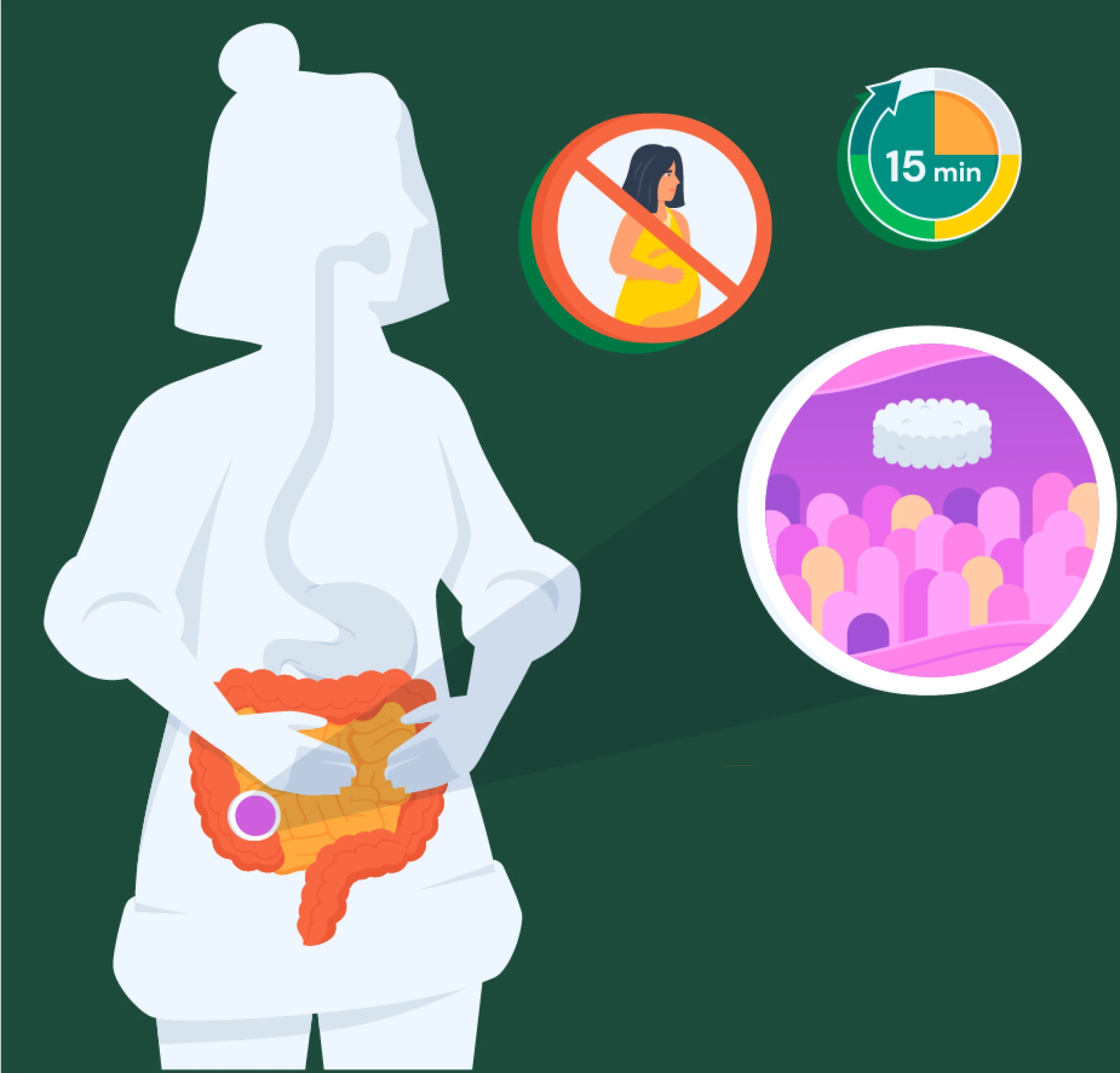Find out how you can adapt your diet to avoid foods that trigger discomfort.


Topic
Irritable Bowel Syndrome (IBS) is a chronic gastrointestinal disorder that affects 1 in 5 people in the UK1. Sufferers experience abdominal pain, which can’t be cured but can be treated. Read on to find out more about IBS symptoms and treatment.
How does IBS affect your life?
Cancelling a dinner party
IBS strikes when you least expect it and you’re in pain. The dinner you planned with friends will have to wait.
You go to the cinema and, in the middle of the film, IBS pays you an unexpected visit. The intense stomach ache forces you to leave. You’ll have to catch the end of the film some other time.
Hi-jacking your presentation
You have an important presentation at work, but stress triggers your IBS just before the meeting. Your stomach ache is so bad you can’t concentrate. You have to go home instead
Abdominal cramps are the main symptom that can impact your day. If you’ve already experienced an episode of IBS, you’ll know that if the pain becomes very intense it can prevent you from leaving the house. Changes in bowel movements – such as diarrhoea or constipation – often accompany IBS.
People with IBS also often complain of bloating, especially in the evening.2
Our days are full of things that can trigger IBS symptoms. Learn about your triggers and how to avoid them.
Around 62% of people with IBS say that stress or anxiety causes their IBS to flare up3. It’s not always possible to avoid these feelings but learning how to manage them can really help.
Did you know your brain and gut are linked? That means your emotions can affect your stomach and vice versa.
Discover more about this connection.
Dairy, soft drinks, greasy food and alcohol are among the most common foods and drink that can trigger IBS-related abdominal pain.
IBS treatment and management
IBS has no cure, but you can manage its symptoms with dietary and lifestyle changes. You can also relieve the painful cramps with antispasmodics treatment.
Choose a healthy diet
Certain types of food and drink – including greasy food, fizzy drinks and dairy – are more difficult to digest and can trigger IBS pain.
Relieve cramps
Take an antispasmodic medication to help alleviate IBS cramping pain. Buscopan® IBS Relief is a great choice. Unlike analgesics, it acts directly on the smooth muscles in your gut at the source of pain.
Use this interactive guide and answer some questions about your symptoms to understand if they might be caused by IBS before talking to your GP.
Although the causes of IBS are unknown, IBS is more likely to affect people with a family history of this disease, young people, women, people suffering from stressful situations, and those who suffer from an alteration of the intestinal flora.
Irritable bowel syndrome (IBS) commonly appears in adolescence or early adulthood. However, it can appear at any age.
So far there is no test that can diagnose it. If you have symptoms that make you suspect that you suffer from this disorder or have recurrent abdominal discomfort, consult your doctor.
Buscopan® can help you relieve belly pain because it relaxes the smooth muscles in your belly and relieves abdominal cramps. If you are unsure or have other symptoms that may give you concern consult your doctor.

.webp 0w)
Learn more about stomach pain